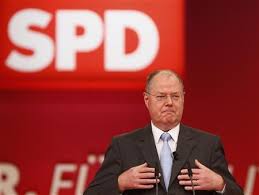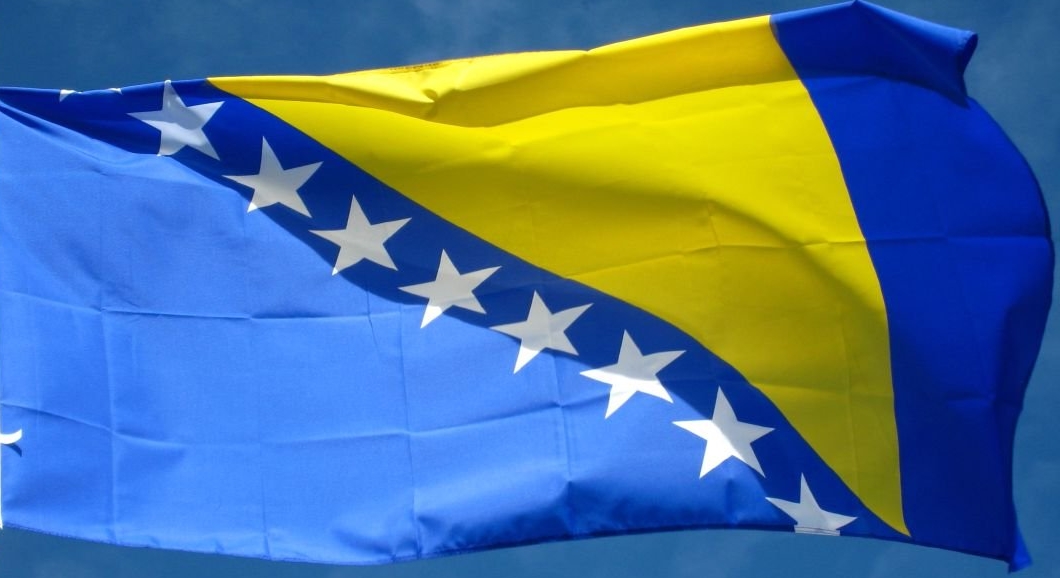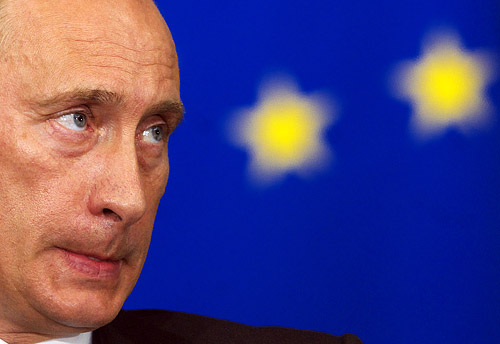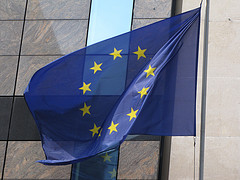
Scotland: What will happen after the vote
At 650 pages Scotland’s Future is not a light read. It stands as the Scottish Government’s manifesto for a yes vote in the independence referendum. The volume ranges from profoundly important questions relating to currency and Scotland’s membership of the European Union, right down to weather-forecasting and the future of the National Lottery. Though it is likely many copies of Scotland’s Future will be printed, it is unlikely many will be read from cover to cover. Its authors probably do not regret its length: by its very heft, the volume seeks to rebut claims that the consequences of independence have not been carefully thought through. This post considers the immediate constitutional consequences of a yes vote in light of Scotland’s Future. Its central argument will be that the timescale proposed by the Scottish Government for independence following a referendum is unrealistic, and may work against the interests of an independent Scotland.

Merkel’s Grand Coalition: A new chance for Germany’s social democracy
Fears over a grand coalition are again haunting Germany’s social democracy. As was the case in 2005, the new coalition is comprised of the Christian Democratic Union (CDU, together with the CSU, its Bavarian pendant) and the Social Democratic Party (SPD). Such a composition worries many Social Democrats given the last experience with a coalition in 2009 when the SPD vote share shrank by 12.2 per cent. Some Social Democrats are even doubtful about whether the SPD can survive another grand coalition with Angela Merkel’s CDU.
While the pessimism is understandable, it is misplaced. Another grand coalition will not necessarily produce negative consequences for Germany’s Social Democracy, for three reasons.
First and most importantly, there is no clear pattern whereby the smaller coalition partner loses in a grand coalition. The two previous grand coalitions at the national level offer mixed examples. While the last experience was surely painful for the SPD, it actually benefited from the first grand coalition from 1966 to 1969. Despite some unpopular decisions in the Social Democratic camp at the time, such as the emergency laws (Notstandsgesetze), the SPD received part of the credit from its association with several governmental accomplishments, most notably the economic policies that led to the end of Germany’s first economic recession after World War II. At the time, the SPD had managed to find the right balance between its own political autonomy and participation in the grand coalition, acquiring a reputation for pragmatism and responsibility. This was most embodied by Karl Schiller, the minister of the economy, Herbert Wehner, the party chairman, and Helmut Schmidt, the leader of the SPD’s parliamentary group. Despite being the junior partner in a grand coalition, the SPD thus succeeded in proving its worth. This, in turn, helped the Social Democrats take over as the majority party in 1969, putting an end to 20 years of Christian Democratic dominance.

Bosnia is still struggling to create a cohesive state
As Bosnia and Herzegovina continues to come to terms with its violent past, many still wonder if the country will ultimately disintegrate. This was a prognosis recently put to Zeljka Cvijanovic, the current Prime Minister of Republika Srpska, a sub-region. She dismissed the question out of hand. Still, it was clear from her presentation at the Royal United Services Institute in London and in a subsequent interview for BBC HardTalk that her primary allegiance (as a citizen and politician) is to Republika Srpska, rather than to Bosnia and Herzegovina.

The EU, Russia, and the Caucasus
A funny thing happened in Moscow in September. Meeting with Russian President Vladimir Putin in Moscow at the beginning of the month, Armenia’s President Sargsian announced that Armenia had decided to join the Eurasian Customs Union. The Customs Union and the more general Eurasian Union project are an effort to foster re-integration in the former Soviet space. Sargsian’s statement effectively amounted to a retreat from the agreement between Armenia and the EU on Association. After three years of intense and successful negotiation with the EU, Armenia dumped the project.

Why the enormous interest in the mothballed Euro Hawk drone deal?
In a recent Politics In Spires post, Tina Schivatcheva discusses the scandal surrounding ‘Euro Hawk’, the failed US-German drone programme. In the post, Ms Schivatcheva asserts that the German public was ‘keep[t] […] in the dark for 13 consecutive years’ regarding the surveillance drone project.
But this is incorrect. Plans for the project were officially announced at the Paris Air Show, Le Bourget, in 2001. At the Berlin Air Show ILA in 2002, the interested public could admire a full-scale mock-up of the Euro Hawk/Global Hawk, and the specialised press has reported on the deal since the early 2000s.
The general press, however, took little notice of the programme. Only when the plans began to generate costs – as for instance in 2009 when the Bundestag’s budget committee was asked to give the deal its blessing – some media outlets reported on the issue.
Therefore, Ms Schivatcheva is probably correct in that most German citizens only heard about the programme to equip Northrop Grumman’s Global Hawk airframe with German surveillance technology – thereby creating the Euro Hawk – when the project was scrapped in May 2013. When the cancellation of the project was made public, however, emotions began to run high. Many speculated whether the failed deal might lead to the resignation of German Defence Minister Thomas de Maizière, which the political opposition demanded outright. Mr Maizière was only saved by the upcoming federal elections: in the run-up, Chancellor Merkel could not afford to lose one of her most valuable ministers.
In my view, the surprising aspect of this scandal is not that the German public seemed to have known little about the deal before its untimely end. What is surprising is the enormous public interest created by the failed deal. For months after the project’s cancellation, debates of the matter did not abate and the enquiry commission asked to look into the matter received wide media coverage.

Voter Blues: The European Parliament’s efforts to boost turnout in the 2014 Elections remain problematic
In 2014, 300 million eligible voters across the European Union (EU) will have the opportunity to cast their vote in the elections for the second-largest legislative body in the world: the European Parliament. Currently at 766 members, in the new legislative period, the Parliament will have 751 members who according to the Treaty on European Union (TEU) directly represent the European citizens. And this election is bound to be different—if it is up to Members of European Parliament (MEP) that is. The EP, together with the Commission, is making a huge effort to politicise the process and make the 2014 elections truly European. Although commendable, these efforts are not without problems: in some ways, they stretch the limits of the EU treaties to worrying degrees and risk creating a dysfunctional decision-making context after the elections.
In spite of its considerable (and increasing) powers under the Treaties, the Parliament has since the first election faced decreasing turnouts. In the latest 2009 elections, the average was 43 per cent across the EU-27. Efforts are being made to address this problem. In July 2013, a resolution by MEP Andrew Duff included a wide range of measures to improve turnout, the most important of which is the proposal to have Commission candidates of the EP political groups.

In the wake of the German elections – the all-too-soon forgotten Euro Hawk drone scandal
Was it not Germany’s choice and commitment to be a civilian power? The German federal elections have run their course and the CDU/CSU gained the lion’s share of the public’s support. Apparently the electoral results were unaffected by the major political scandal of the summer – the spectacular failure of the Euro Hawk surveillance drone programme. The program has been in the making for 13 years during three consecutive government mandates – in two of these mandates the CDU/CSU has been the major political power. The ‘rise and fall’ of the surveillance drone has also come at a cost of half a billion euros to the German taxpayers. Should such a scandal be forgotten so quickly?
‘Drones’ evoke recent American military campaigns, rather than the dusty Ministerial offices in the German capital. Thus, in the summer of 2013, the news of the ‘rise and fall’ of a German surveillance drone caught the German and European public by surprise. As the long silence of the German government on the acquisition of this new military capability was suddenly broken, the public learnt with astonishment that for 13 years the programme has been lurching on, even though the surveillance drone’s flying problems have long been ‘ a fact universally acknowledged.’ Years have gone by, but the technological problems have remained unresolved and the aviation authorities would not certify the Unmanned Aerial Vehicle (UAV) due to its lack of an anti-collision system. In 2013, Germany finally bid an official farewell to the Euro Hawk. Amidst the noise of the heated televised debates and the tearful (for some) farewell to this particular weapon, the old message that once Hemingway made about the hopelessness and futility of war was all but muted.

The European Commission is wrong about Romania’s Rosia Montana mining project
For the past seven weeks, Romanians have been leading one of the largest environmental protest movements in the world. Around 200,000 Romanians have taken to the streets in cities across Romania and the world to protest against the government’s recent approval of draft legislation for an open-pit cyanide-based mining project at Rosia Montana. According to Gabriel Resources Ltd., the Canadian company behind the scheme, the plan for the project is to dig up an estimated 314 tonnes of gold squirrelled away in Rosia Montana, using 40 tonnes of cyanide per day.
Despite the protests, the European Commission (EC) did not make a statement until only recently. The Commission’s response was prompted when Commissioner Janez Potocnik received a letter soliciting information on the EC’s intended actions regarding Romania’s moves to accelerate the authorization of the mining project, which would use environmentally dangerous cyanide leaching technology.
But a spokesperson representing the Commission emphasized that it was not concerned with the Rosia Montana project because it so far does not breach any EU environmental regulations. The spokesperson added that, as long as the Canadian company obtains its needed licenses, the project would be fine.
The Commission is wrong.









